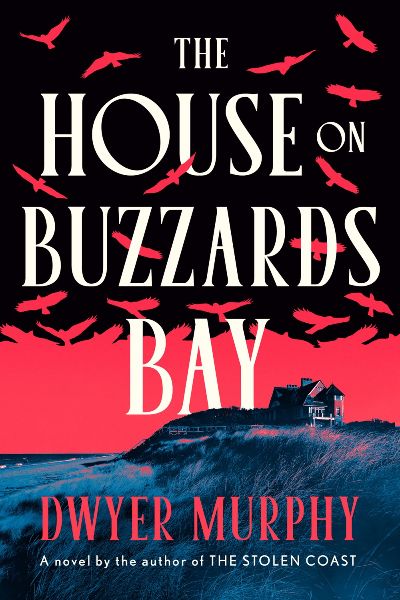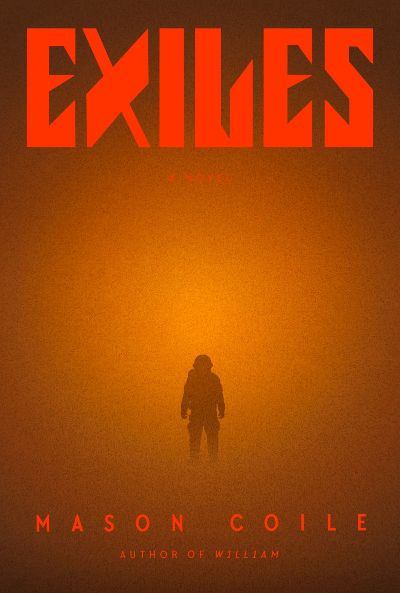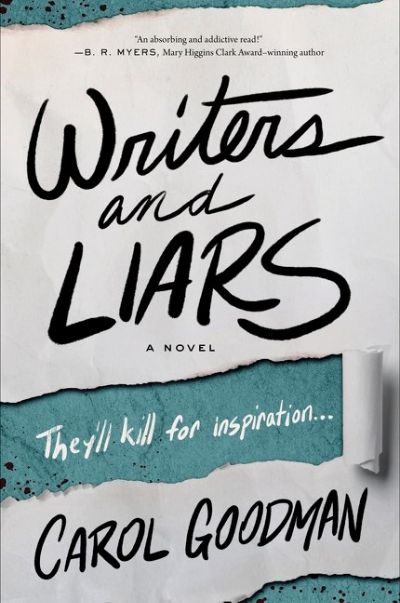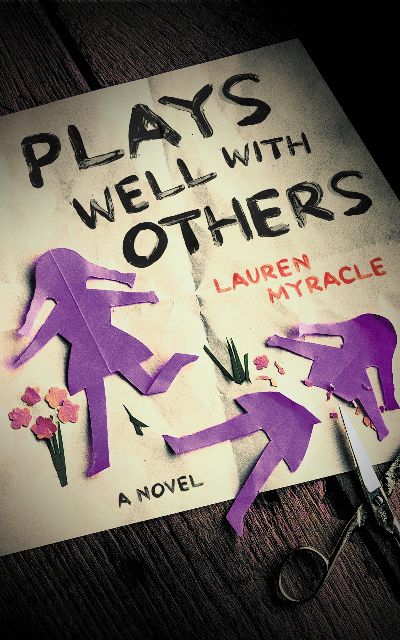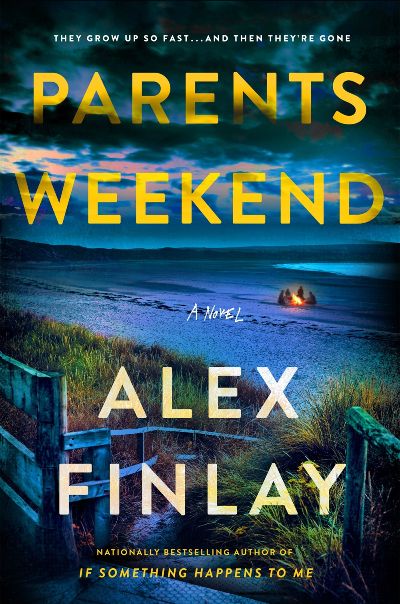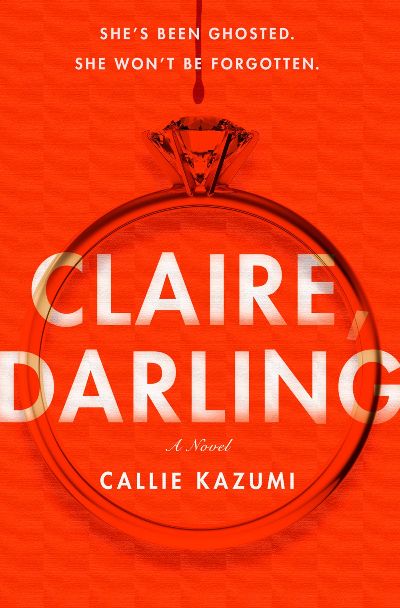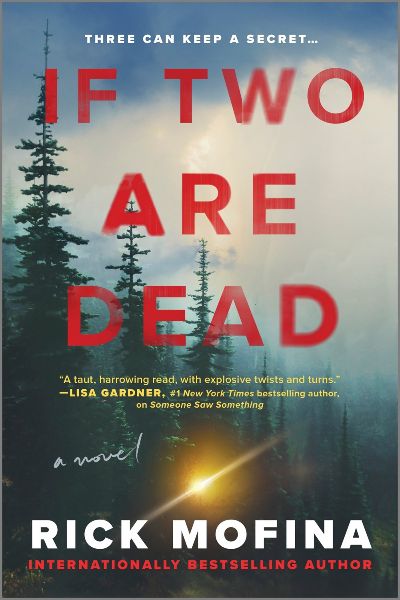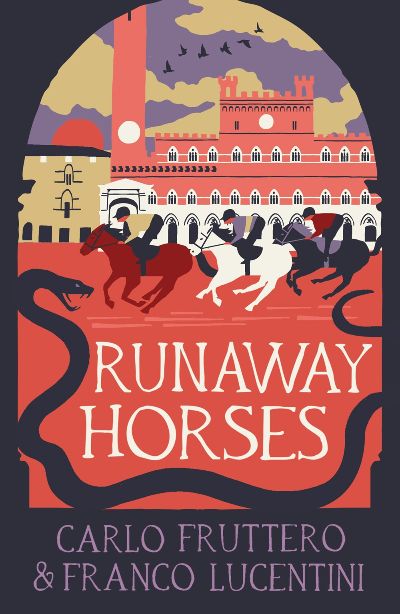A pitch-perfect novel of suspense from Ryan that will force readers into racing to the book’s dramatic, and unsettling, conclusion. Tessa Calloway is a new but hugely successful novelist, and to capitalize on her popularity, her publisher has sent her on a multi-city, multi-week book tour that leaves Tessa exhausted, missing her young children and husband, while appreciating the hundreds of fans who come out to greet her. Until Tessa realizes that among her fans is a stalker. A stalker who knows her past inside and out, and has the power to sabotage her career while also destroying her family. Will Tessa capitulate and give her what she demands, if it means her darkest secrets will remain hidden? It’s a delight to have experienced, industry-insider Ryan provide this nail-biter with a good jolt of reality. And thanks to her for recognizing the roles that both booksellers and librarians play in fostering readers.
Psychological
Murphy likes to take lawyer characters out of their geographic and emotional comfort zones, and in this, perhaps his best book yet, he makes the discomfort both sharper and more nebulous than we’re used to. The author’s (An Honest Living) main character is Jim, who’s married to Valentina; they spend the summer in a house he inherited in Buzzards Bay, on the southeastern coast of Massachusetts. Before he met Valentina, he gave his tight pack of college friends shares in the home; over the years, they’ve summered there, some regularly, others rarely seen. This summer sees the return of several regulars and of Bruce, who hasn’t shown up in years. He brings with him a darkness that creeps over the old friends and becomes especially pronounced when the residents, in a nod to the house’s origins as a home for an occult group, holds a séance. A French woman who’s an ex of one of the gang, with her languid but also guarded ways, will be memorable for her strange manner. But all the characters and even the house will stay with readers, especially those who enjoy introspective language (“there was something petty, almost squalid, in not appreciating a friend’s beauty until she was holding it there before you”) and a slight tinge of the supernatural.
Coile, who also writes as Andrew Pyper, passed away in early January, and this tense and terrific novel is sadly his last. A crew of three—two men and one woman—is sent to Mars to coordinate the eventual habitation of the red planet. Machines were sent earlier to create the base where they will live out the remainder of their lives, but the crew arrives at Mars to find no response to their signal. A bumpy ride to the surface and changed lock codes reveal a strange scenario. The robots built the habitat but were attacked by a being with stealth abilities and super strength, and the description sounds like an insect if it had one giant claw and could walk on two legs. As the crew listens to the machines tell their story, it appears that not all is as it seems, and the robots might be homesick for Earth, which would be entirely against their programming. This mix of horror, isolation, and psychological suspense demands to be read in one sitting and forces the reader to ask provocative questions with answers that have profound implications, such as, “What constitutes sentience?” and “What is the price humanity is willing to pay to reach the stars?” Exiles would make a fantastic movie, and fans of Alien or Mary Doria Russell’s The Sparrow should consider going on this journey.
Fifteen years ago, a small group of young writers were invited to a retreat on the Greek isle of Eris. (Eris, by the way, is the goddess of discord and strife, a real trouble-maker if there ever was one.) Back then, the goddess managed to sow all manner of discontent, successfully breaking up at least one young couple. Who knows what she has in store for this retreat? Nevertheless, everyone from 15 years ago has been invited back by the mysterious billionaire and publisher Argos Alexander for another retreat, and nearly everyone is game to attend, bitter or not. Several of the participants are still writing, mostly crime fiction, and what writer could ignore powerful Argos? Even our narrator, Maia, who wrote one successful debut years ago, is hoping to make a fresh start. But Argos is absent for dinner the first night, leaving behind directions that whoever can write the best mystery while they are on the island will receive money and fame. Except he’s absent again for breakfast, and when a group goes for a hike, there is Argos, a crumpled corpse at the bottom of a cliff. This gives our writers plenty to worry about, from the expected (who killed Argos, and who will be murdered next) to the use of nature as a weapon. Rich in Greek mythology, this book will fascinate many readers
You won’t find any members of organized crime here. Nor are the characters locked on a Scottish island or seeking a cozy murderer who has their community petrified. In fact, men have practically no roles in this book. And who needs them? The small group of suburban women who populate this novel are terrifying enough. Let’s start out with Jake, who a year ago endured her then-bestie posting their most intimate correspondence on social media. The result? Jake lost everything: job, house, and, most importantly, her husband. After a bit of sulking and trying to live down her past, Jake is back—she settles into a charming bungalow—and gets ready to retaliate. But this time she has a new friend with her, Mabel, who has her own set of problems. The two join up to seek revenge, although the real victims turn out to be the kids, who find themselves in the cross-fires (for real!). Is anyone in this terrifying community without a grievance? A compulsive domestic thriller that is as dark as it is dangerous.
Santa Clara University hosts an annual Parents Weekend for students’ families. In Finlay’s latest thriller, he showcases five families with baggage, from students hiding secrets to their parents with facades created to ignore reality. This generational mess creates a drama school larger than anything New York or Los Angeles universities have ever seen, with dysfunction ruling the day. The parents and youngsters are supposed to attend a dinner event together, but only the adults show up. Numerous calls and texts to the kids go unanswered, and the worries grow. An accidental drowning of a student a couple of days earlier may hold the key. FBI Special Agent Sarah Keller arrives to find answers. Keller was seen in Finlay’s earlier novels Every Last Fear and The Night Shift, and fans will be thrilled to see her again, while newcomers will fall in love with her. As Keller talks to the parents of the missing students, she begins to uncover the truth of what each family wants to avoid. Finlay tells the story from the parents’ perspective, occasionally peering into the five missing students’ lives without revealing too much. He crafts a genuine page-turner with a cast of flawed and realistic human characters. Plan a weekend to devour this terrific thriller.
Yes, her childhood was terrifying, with a mother who made Mommie Dearest seem like milquetoast. But, these days, Claire has really got it together. Now she’s 30, with a job in PR that she always wanted and a fiancé, Noah, who’s handsome and loving; life couldn’t be better. Even her horrible mother died a few months ago, freeing Claire, although leaving her nothing in her will. Until one day when she decides to drop off lunch for Noah at his office—it’s their anniversary—and the receptionist won’t let her in. In fact, she claims that Noah hasn’t worked there in three months. Whaaaat? That night, Noah doesn’t show up at the apartment they share. He’s not picking up her calls. Not answering her texts. In the days to come, and with the help of her friend Sukhi, Claire tracks Noah through every channel possible, getting repeatedly blocked along the way and transforming from a happy young woman to a stalker, obsessed with the beautiful blonde woman who keeps showing up in Noah’s socials. A psychological thriller that will delight readers who enjoy fiction that’s thoughtful but also reads like a rocket. If you appreciated Kimberly McCreight’s Like Mother, Like Daughter, you may well like this.
Luke Conway and his wife, Carrie, are moving from LA back to Clear River, Texas, where they grew up, so they can help Carrie’s father, who is gravely ill. For police officer Luke, it is a chance to escape a shooting that has traumatized him, and he’s now a county deputy. Carrie has baggage as well, but she is heading towards it. When she was a high-school junior, she was the sole survivor of an incident that left two girls dead and her with a chip in her skull. She barely survived and can’t remember any details of that day. One evening, while off-duty, Luke appears to hit someone while driving home in the pouring rain. Inspecting the area provides no evidence of a body, so he leaves and doesn’t report it. Luke tells himself that he hit a tree branch, but deep down, he knows he hit someone and decides to keep it a secret. Carrie arrives in town to find a not-so-warm welcome and soon learns that some there believe she killed the two girls years ago and is faking amnesia. Luke and Carrie need each other’s support, but running from the truth only makes matters worse for their marriage and their lives. Mofina generates suspense in unexpected ways and crafts a compelling, genius story that ends in a manner not even savvy readers will see coming. His background as a newspaper reporter allows him to craft realistic characters who face overwhelming odds. Harlan Coben and Alex Finlay fans should already have Mofina on their to-read pile, and this one is another guaranteed bestseller.
Three women, who couldn’t be more different, come together over a man—known as Zander, Zachary, Xavier and more—whom they hate a great deal and love, perhaps, just a little. Marina is a former chef, now a full-time mom, who’s recently divorced and quite broke, but is enjoying rediscovering love with Xavier. Lilah is a withdrawn librarian who wins the lottery—literally. With funds pouring into her account, and falling in love with a man who is now her fiancé, Xavier, life couldn’t get any better. Then there’s Opal, the oldest of the trinity and a well-known health guru whose history with Xavier—confidence man, liar, thief, and lover—extends back the farthest. How the three women come together, and slowly learn to trust one another, is an absolute delight. But what to do with Xavier, currently a hostage in Marina’s basement, is even more of a laugh riot. Until it isn’t, and the book takes a very dark turn indeed. For all who loved Cohen’s Bad Men and Robert Thorogood’s The Marlow Club Murder.
And now for something completely different. Carlo Fruttero and Franco Lucentini were well-known Italian authors who co-authored several mysteries, throughout the 1980s and ‘90s, under their surnames of Fruttero & Lucentini. Their best-known works are The Lover of No Fixed Abode, set in Venice, and The Sunday Woman, which was made into a film starring Marcello Mastroianni and Jacqueline Bisset. Runaway Horses takes place in Siena during the Palio of Siena, the biannual horse race that the Sienese have been celebrating since the 13th century. It features lawyer Enzo Maggione and his wife, Valeria, who are traveling from their home in Milan to Siena, visiting Valeria’s brother along the way. But the two never make it to the farm; instead, they encounter a violent storm and take refuge in a nearby, sprawling estate. Here they find a most idiosyncratic group, including Puddu, the best known of the Palio’s jockeys. Fruttero and Lucentini take the reader deep into the arcane practices of the Palio, which are full of plots and counterplots, while Enzo and Valeria discover their attraction not only to each other but to other residents on the estate as well. Readers with an interest in Siena may enjoy the exhibit Siena: The Rise of Painting 1300-1350, which is currently on display at the Metropolitan Museum and will travel to Britain’s National Gallery in spring 2025.


